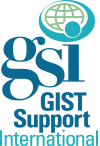PLX3397 is a potent KIT inhibitor currently in trial for GIST. Researchers tested PLX3397 in a mouse model of brain ischemia (I guess they could have used any of a number of different KIT inhibitors).
Researchers found that KIT inhibition with the drug depleted microglia. Normally microglia have a neuroprotective action against injury in the brain and brain ischemia/inflammation.
The depletion of microglia via the KIT inhibitor exacerbated the ischemic neurodeficits and brain infarction, leading to a worse outcome.
https://www.ncbi.nlm.nih.gov/
J Cereb Blood Flow Metab. 2017 Jun;37(6):2224-2236. doi: 10.1177/0271678X17694185. Epub 2017 Jan 1.
Depletion of microglia exacerbates postischemic inflammation and brain injury.
Jin WN1,2, Shi SX2,3, Li Z1,2, Li M1,2, Wood K2, Gonzales RJ3, Liu Q1,2.
Author information
Abstract
Brain ischemia elicits microglial activation and microglia survival depend on signaling through colony-stimulating factor 1 receptor (CSF1R). Although depletion of microglia has been linked to worse stroke outcomes, it remains unclear to what extent and by what mechanisms activated microglia influence ischemia-induced inflammation and injury in the brain. Using a mouse model of transient focal cerebral ischemia and reperfusion, we demonstrated that depletion of microglia via administration of the dual CSF1R/c-Kit inhibitor PLX3397 exacerbates neurodeficits and brain infarction. Depletion of microglia augmented the production of inflammatory mediators, leukocyte infiltration, and cell death during brain ischemia. Of note, microglial depletion-induced exacerbation of stroke severity did not solely depend on lymphocytes and monocytes. Importantly, depletion of microglia dramatically augmented the production of inflammatory mediators by astrocytes after brain ischemia . In vitro studies reveal that microglia restricted ischemia-induced astrocyte response and provided neuroprotective effects. Our findings suggest that neuroprotective effects of microglia may result, in part, from its inhibitory action on astrocyte response after ischemia.

